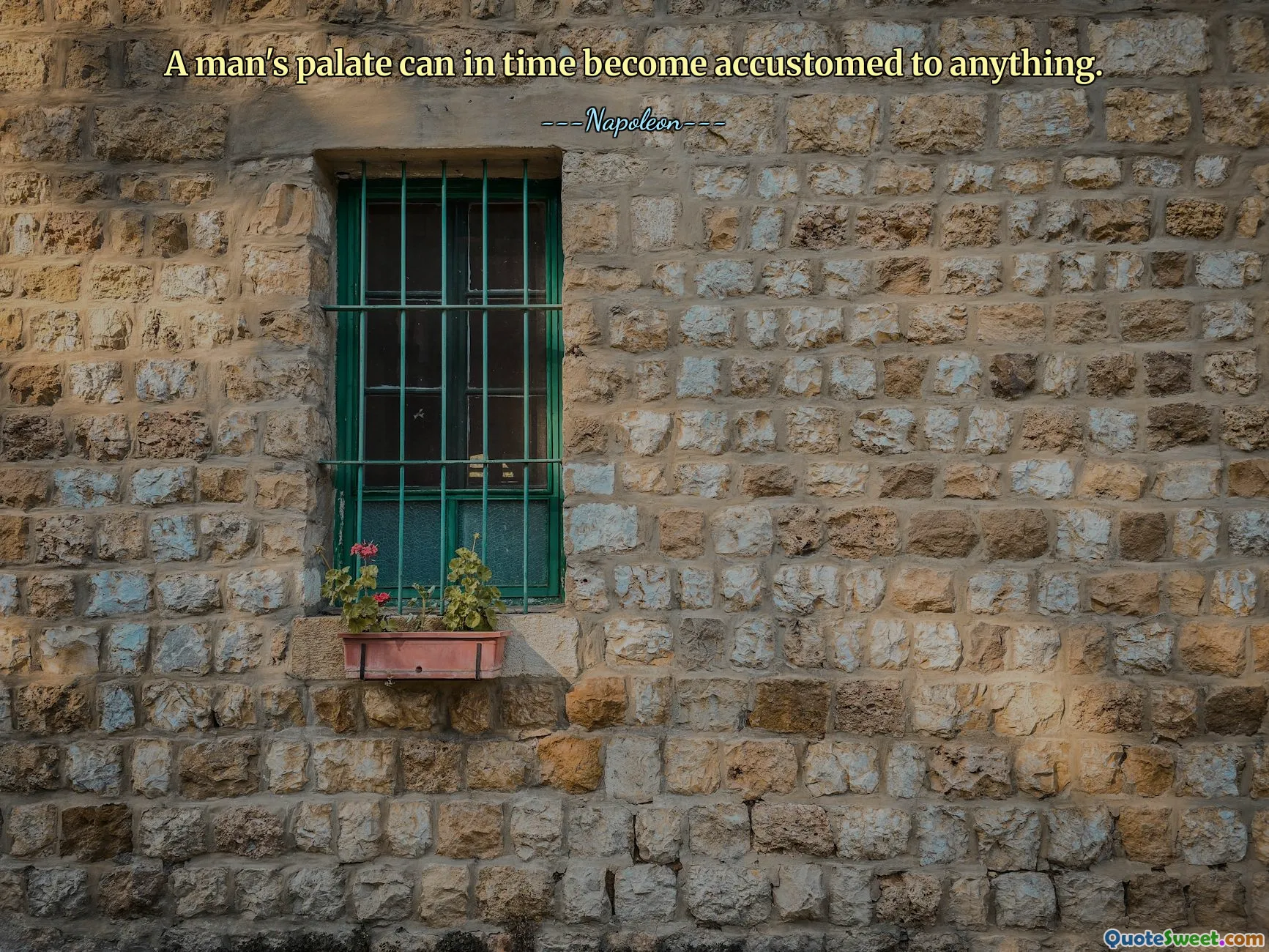
A man's palate can in time become accustomed to anything.
This quote by Napoleon thoughtfully captures the incredible adaptability of human beings, signifying not only our physical capacities but also our psychological resilience. The palate, generally understood as the sense of taste, here symbolizes our broader ability to adjust and tolerate new and diverse experiences over time. It suggests that what may initially seem unpleasant, unsuitable, or challenging can eventually become acceptable or even pleasurable if one endures and continues to expose oneself to it.
This idea aligns with the broader human experience of adaptation, whether it pertains to cultural differences, difficult circumstances, or unfamiliar tastes and habits. It reflects the notion that discomfort and aversion are often temporary states—conditions that the mind and body can transcend given enough exposure, patience, and perseverance. The quote also touches upon the process of conditioning, illustrating how preferences and tolerances evolve from repeated experiences.
Moreover, it hints at the power of mindset in how adaptability is framed: the openness to change and the willingness to embrace new experiences truly enable growth and transformation. The quote inspires us to reconsider our initial judgments or biases toward certain situations or challenges, encouraging a perspective that growth often emerges from persistent adjustment and habituation rather than immediate acceptance.
In essence, this succinct observation emphasizes the remarkable capacity for human flexibility – physically, mentally, and emotionally. It reminds us that adaptation is a continual journey, one that enables survival and progression. Changing one’s palate, literally or metaphorically, underscores the broader narrative of resilience and acceptance inherent in human nature.






